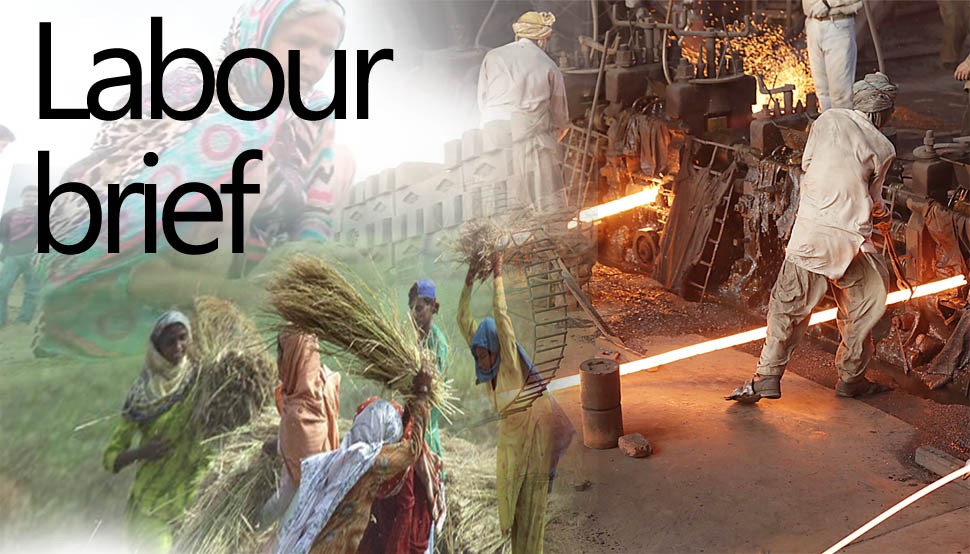
How life can be changed for the better for the labourer in Pakistan?

Every year Labour Day is celebrated in Pakistan on May 1, like elsewhere in the world, making a lot of commitments for the betterment of the working class. Still, life has not been easy for the labourer in Pakistan who toils to have two-time meals a day, what to speak of medical care and other necessities of life. Workers in Pakistan call for their basic rights, once again.
Statistics are not comforting. According to Labour Force Survey 2014-2015, Pakistan has 57 million employed labour force and 3 million unemployed workers, bringing the total number of workforce to 60 million. Agriculture sector forms the largest component, or 43 per cent.
Despite being a signatory of two major Conventions of International Labour Organisation (ILO), including "Freedom of Association and Protection of the Right to Organise Convention, 1948" and "Right to Organise and Collective Bargaining Convention, 1949" Pakistan has failed to give labourers their due.
Understandably, over the years, the number of workers in trade unions is shrinking. The survey says that a majority of labour force, associated with agriculture and fishing sector, do not have a legal right to form a trade union under the relevant industrial relations laws.
Also, working conditions need to be drastically improved. The survey claims 4 per cent of the total employed persons face occupational injury/disease in Pakistan. This ratio may be much higher in the informal sector. Agriculture is the most vulnerable industry regarding occupational health and safety. Even much worse are the conditions under which women have to work. The World Bank, in its World Development Indicators in 2014, mentions labour force participation of women in Pakistan as approximately 25 per cent as compared to more than 50 per cent globally and 58 per cent in Bangladesh.
Labour welfare institutions have not worked satisfactorily either for the benefit of the labour workforce. EOBI registration, for instance, the right of every labourer, is not accessible to many. It is time the labour workforce is given their true status if the country is to progress in today’s highly competitive world.